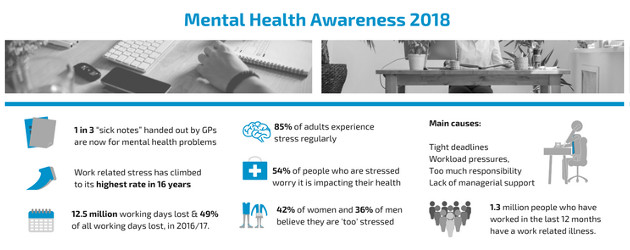Thrive: Feel Stress Free is an app which uses evidenced-based techniques for the prevention, detection and treatment of common mental health conditions such as stress, anxiety and mild depression.

TWITTER | INSTAGRAM | FACEBOOK
Thrive: Feel Stress Free is an app which uses evidenced-based techniques for the prevention, detection and treatment of common mental health conditions such as stress, anxiety and mild depression. Research has shown that for those who screened positive for mild-moderate anxiety and/or depression, 96% of them ‘recover’ within 8 weeks of using Thrive: Feel Stress Free. It has also been shown to speed up depression recovery time, working the same as some anti-depressants without the side effects. There are three main aspects of Thrive: Feel Stress Free, including prevention, detection and treatment. The app also includes 24/7 support and is available when and where employees may need it.
The prevention: The app encourages support seeking behaviour and detects issues before they become too severe. Thrive is not for the 1 in 4 struggling with their mental wellbeing, it is for the 4 in 4 of us that need to care for our mental wellbeing and cope with life’s daily stresses. The exercises within the app, mood tracking and systems all prevent mental health conditions occurring or becoming worse.
The detection: The detection aspect is done by using PHQ9/GAD7 quiz to analyse a user’s mental wellbeing, from this daily screen the app can determine if a user is suffering with anxiety and or depression. Users will be then recommended a personalised plan within the app and directed to the right support within their company/sector to improve their mental wellbeing.
The treatment: The app consists of many forms of treatment. The four relaxation techniques are calm breathing, meditation, deep muscle relaxation and applied relaxation – meaning there should be something for everyone. Each of the techniques are evidence-based, clinically proven and used in real life therapy to help manage common mental health conditions such as stress, anxiety and mild depression.










